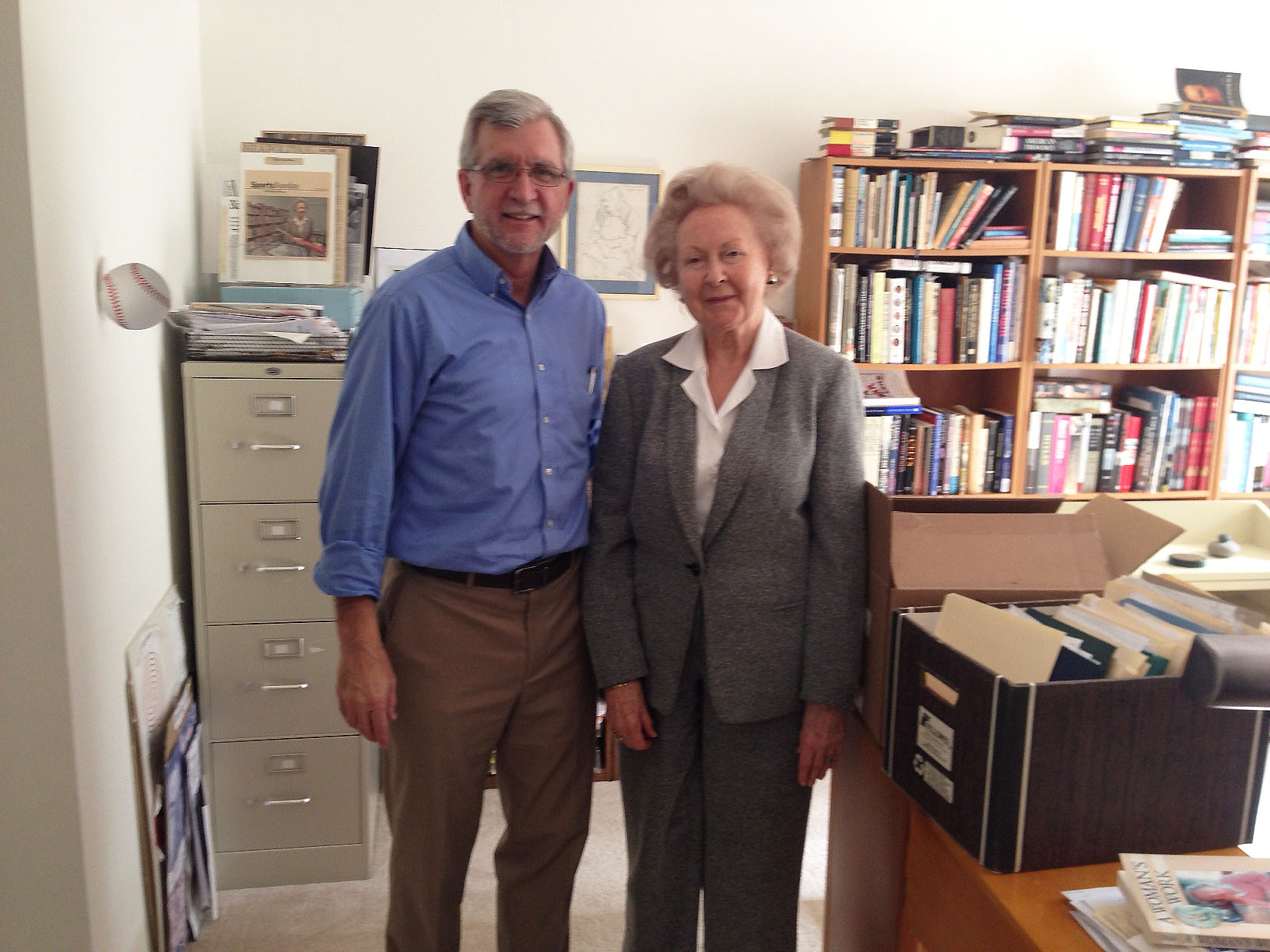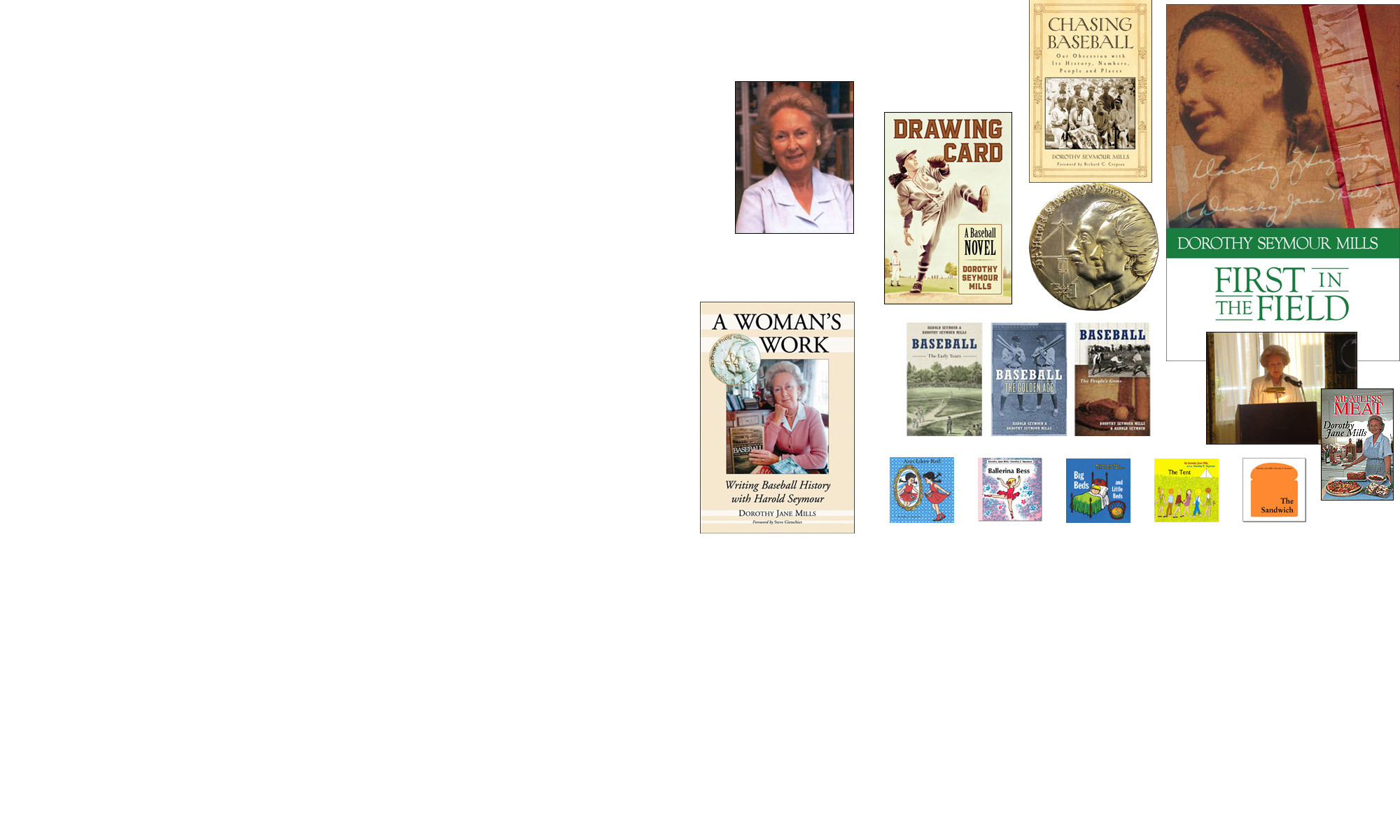When I delivered the keynote address at “The Fred” in Cooperstown on April 15, 2014, I focused on my conviction that the kind of research into baseball history still needed had to do with the amateur players rather than the professionals. A fuller understanding of the amateur contribution to America would make for a more well-rounded view of our country’s early history.

I believe that amateur baseball has more significance for American history than professional. It reflects American traits more clearly, and it contributed more directly, at a more fundamental level, to the building of our country.
My strong preference for amateur baseball history over professional has recently been supported by a thoughtful and talented new SABR member, Mark Honer, a Kansas City producer-director who owns a film company called DHTV Digital. Mark has placed himself firmly in the amateur camp by producing a lively documentary about the history of amateur baseball in Kansas and in America.
Mark had been working on his documentary for a year when he contacted me. In his first email to me on Dec. 10, 2015, Mark said he realized that much material had been produced about players who made it to the majors, “but I’m more fascinated with the men who worked 60 hours a week but still played every Sunday afternoon for nothing more than pride and a love of the game.”
This pitch made it right to the catcher’s mitt, so when Mark asked if he could interview me on video for his documentary, I was glad to comply, particularly since he offered to come to Naples, Florida, with his videographer and all his equipment to record the interview. I didn’t need to travel to Kansas City to participate.
We exchanged emails about the topics he would like me to cover in the interview. Mark had already collected a good deal of material but said that “What I’m missing is the broader context that you can provide.”
That’s when I knew I had my work cut out for me, because most of my writing on this topic was done more than 20 years ago, for the book Baseball: The People’s Game (published by Oxford University Press in 1990), and is hardly fresh in my mind. Some of it, about the early spread of baseball just before and after the Civil War, was actually performed 60 years ago, when I was doing research on Harold Seymour’s doctoral dissertation for Cornell University, awarded to him (not me) in 1957. When I looked for and found, in the dissertation, the figures relating to the speed of amateur baseball’s spread in the 1850s, it took a while for me to recognize and remember the work I had done then, in the form of charts and other illustrations, all based on footnoted sources.
So I began cramming for the interview, scheduled for Jan. 12. Meanwhile, I learned about the work Mark had already done for the project.
Mark’s researchers had found out enough about what an early amateur baseball game was like to guide him in staging a re-enactment of a game from the past, using the old-time stadium of the Rossville Rattlers, a historical building in Rossville, Kansas. Moreover, they had uncovered old newspaper stories about exciting games and old photos that revealed the joy with which amateur baseball players participated in early amateur games. And they had found residents who remembered their long-ago pleasure in playing in such old-time games or in watching them.
Promptly at 9 a.m. on Jan. 12, Mark and his videographer, Todd Norris, arrived at The Carlisle, the senior community where I live. At the airport they had rented a van to transport the camera, lighting equipment, and other staging materials they needed in order to conduct a video interview. In my small office they asked permission to relocate furniture and make other changes needed for creating the space required for filming. After an hour of this work, they were ready to proceed, and Mark began asking me his questions about town baseball, its definition, why it was popular, how fast it spread and where, what its atmosphere conveyed, and its effect on townspeople. We explored its contribution to town life and its value to the development of America.
The interview took all morning, since I asked to re-do some parts where I had performed poorly. At age 87, I am no longer able to keep focused on the points I need to make or to express them clearly in complete sentences. I wish I had been asked some of these questions 50 years ago!—except that in middle age I might not have thought through the significance of amateur baseball as I am able to now.
After packing up their equipment, Mark and Todd took me to lunch, bravely agreeing to eat vegan so that I could visit my favorite Naples restaurant, The Loving Hut, where they were surprised that the food tasted delicious and even meaty.
Now I am looking forward to the completion of Mark’s documentary, entitled “Town Teams: Bigger than Baseball,” which he hopes to begin showing at Kansas state venues this spring. I think he will demonstrate that town teams are indeed bigger in their impact on American than anyone has assumed.
